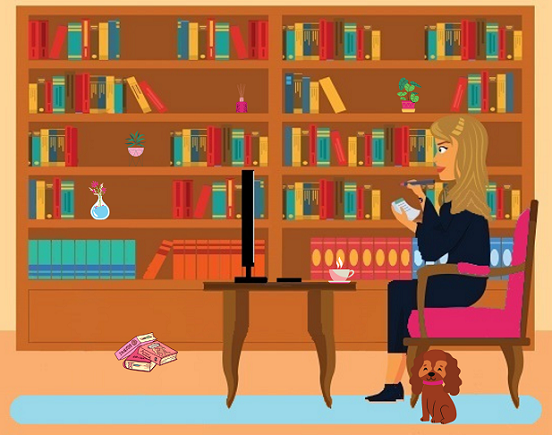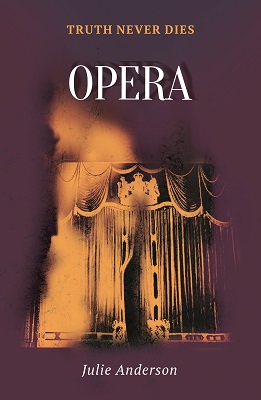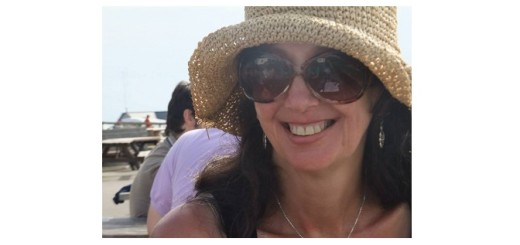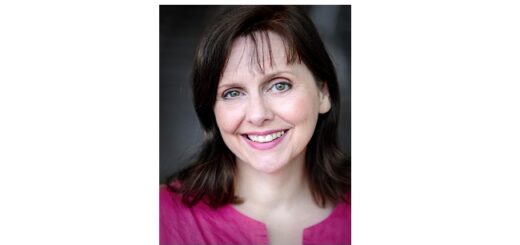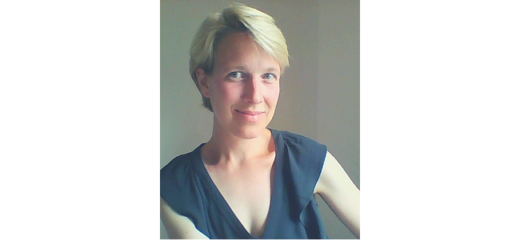The Writing Life of: Julie Anderson
Julie Anderson
This week I am thrilled to be interviewing author Julie Anderson, who will be sharing with us details of her writing life, telling us all about her new book ‘Opera‘, which will be released on 5th September 2022, and answering a few fun questions. This post contains affiliate links.
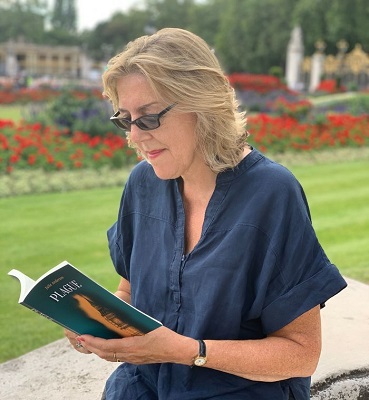
Julie Anderson worked in Westminster and Whitehall for many years in a variety of government departments, including the Office of the Deputy Prime Minister. She now writes a successful political thriller series, beginning with Plague (Claret Press, 2020) and followed by Oracle (Claret Press, 2021).
The third in this series, featuring civil servant investigator Cassandra Fortune is Opera published 5th September 2022.
Julie is also Chair of Trustees of Clapham Writers, the charity responsible for the annual Clapham Book Festival an annual celebration of reading in south London.
1) Did you enjoy writing when you were a child?
Yes, very much, I wrote my first ‘book’ when I was at primary school. It was a horrible thing, almost completely derivative, set in a boarding school. My very patient teacher read it and tried to encourage me. I suspect that she recognised the amount of work that had gone into it, regardless of how unoriginal it was. I always had an active imagination.
2) Which author shaped your childhood?
That’s a difficult question to answer, because the authors would change depending on my age. I remember being completely in love with C.S. Lewis’s Narnia (I’d have been happy to live there, it was the talking animals which were so appealing). Slightly later I discovered detective fiction and was convinced that I could be another Sherlock Holmes (rather than Conan Doyle, please note, given that I ended up writing crime fiction). I remember trying to be very logical about everything, or to sound as if I was at least.
I loved adventure stories too, by Robert Louis Stephenson or Alexander Dumas, or H.G. Wells and wanted to be the hero (which probably says something about my creating Cassandra Fortune, who is the female hero of my books). Then I discovered Dickens and entered a whole different world. If there was no wriggle room and I had to choose just one, I guess that it would be C.S. Lewis.
3) What motivated you to begin your first novel?
My first novel was an adventure story set in 13th century Al Andalus. I had originally written it in episodes for my twelve-year-old nephew and god-son, who was coming to visit my Andalucian home. Many years later I turned it into a book. I wrote about writing it in a piece ‘The God-Mother’s Tale’ at The Godmother’s Tale | The Story Bazaar which also gives access to bits of the original.
4) Do you plot your book, or are you a pantser?
I plan. I think that’s especially important in crime fiction, at least, it is for me, otherwise I wouldn’t be able to successfully arrange the clues and red herrings, let alone the theme. So, for example, I knew, before the publication of the first book in the Cassandra Fortune trilogy, what the final line of the third book would be. Then I had to work out how to get there, but that was ok.
I don’t schedule everything out, like some authors I know, because good ideas come to me as I write and, often, a book takes a turn I hadn’t envisaged. I think this is a good thing, if something surprises me, it’ll surprise the reader too and readers tend to enjoy being surprised. Does that make me a plotter or a pantster? A bit of both, maybe.
5) What is your average writing day?
This varies, depending on what stage I am at in any given book. So, if I’m writing a first draft I will start at about 9.30 and go on until at least 5, though sometimes, if I’m in the groove, I’ll carry on until my husband reminds me that he’s preparing dinner. Sometimes at this stage I go away to write and will work whenever I get the urge. I find early mornings are good, so I’ll be up and typing when my next-door neighbour in Spain gets back from a night shift at the hospital. She always brings me a strong coffee and a pastry from the hospital canteen (whatever it is that they’ve baked fresh that morning). I like to work sitting out on my patio (see photo).
When I’m editing a book I work ‘office hours’, but often I’ll be promoting one book, editing another and sketching out ideas for the next, so it can get confusing.
When I’m in the UK I work in my study (see photo, of my desk as I was writing the answers to these interview questions). I tend to work between 35 and 40 hours a week, but up to 60 when I’m writing the first draft and want to get those words on the page.
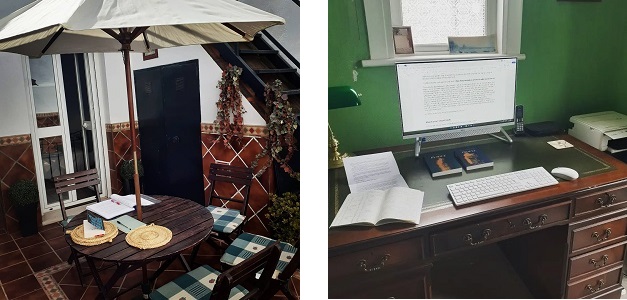
Where Julie Anderson Writes
6) What is the best thing about being an author?
For me, the act of creating. To take an idea and turn it into a book, which people might want to read, is amazing, like painting a marvellous picture or composing a piece of music. It’s something that, if it’s good, will achieve a life of its own and live long after its author. I find that mind-bogglingly remarkable. Then, when people (even ones you don’t know, have never met and are never likely to meet) tell you that they enjoyed reading it and that they want to read whatever you write next, that’s the icing on the cake.
Cassandra Fortune Mysteries
Publisher – Claret Press
Pages – 200
Release Date – 5th September 2022
ISBN 13 – 978-1910461563
Format – ebook, paperback
Synopsis
Truth Never Dies.
It had been solely personal. Not anymore.
Determined to lay the ghosts of her past, Cassandra Fortune asks a former head of GCHQ for help, only to receive a message from beyond the grave. A riddle to puzzle out and a murder to solve. She revisits an old betrayal in an ancient land, uncovering subterfuge and treason, but finds that it is linked with her own quest for the truth.
As Christmas approaches, a shadowy presence haunts her footsteps. Is this because of the case, or is it the return of an old enemy? His criminal network shattered, is he seeking revenge?
What is real and what only appears to be? Who can be trusted and who is double-dealing? Cassie must find the truth. And survive.
Purchase Online From:
7) How did you go about researching the content for your book?
Opera is set in Whitehall and Westminster, a world I know well because I was a senior Civil Servant for many years. I regularly visited the Palace of Westminster – the Houses of Parliament – and much of my story is set there, especially in parts of the Palace which members of the general public don’t get to see.
A lot of the setting of my tale was already in my head and, given that it deals with working in the upper reaches of Whitehall, that was too. But Opera is slightly different to its two predecessors in that it enters the world of the security services. I’ve never worked in any of them, but I know people who did and they were generous with their time and knowledge, talking with me and reading the draft manuscript.
8) How long did it take to go from the ideas stage to writing the last word?
I began sketching out Opera in late 2020/early 2021, but put pen to paper in terms of the first draft on 22nd March 2021 (I keep detailed records). I sent off the final, edited, version to my publishers on Valentine’s Day 2022. Only the proof reading to go now. I’d say thirteen months in total, but, please bear in mind, this was the third book, so much of the plot and many of the characters had been
simmering away nicely for some time before the final dish was concocted.
9) What made you choose the genre you write in?
I had used to write historical adventure stories, but it was a chance encounter with a director of a publishing company which steered me towards writing crime fiction. My earlier books hadn’t sold well, even though one was long listed for an award. I was speculating on what to do next, when it was suggested to me that my adventure stories had jeopardy, suspense, danger and tension, all pertinent to crime fiction, so why didn’t I write crime? Although I thought it unlikely, I considered it and thought ‘Why not?’ Thus Cassandra Fortune, Whitehall sleuth, was born.
10) How did you come up with the name(s) for your lead character(s)?
In classical literature Cassandra was the daughter of Priam, King of Troy, who was cursed by Apollo (for refusing to sleep with him) with second sight, the curse being that no one would ever believe her even though she really could tell the future. I wanted my Cassandra to have something of the seer about her, but to be more fortunate (hence her surname); plus, I knew that the second in the trilogy was going to be set in Delphi, Greece, so her name would become a running joke.
11) Can you give us an insight into your characters?
Cassandra is a complex, modern, woman; a career civil servant. She has had to break away from a much more traditional background and has sacrificed her marriage and, to an extent, her family relationships, to her work. She’s ambitious and tough, but, underneath, quite vulnerable. When we first meet her, she has had a setback, having been forced to leave the job she loves because – she thinks – she isn’t good enough. So she is a bit damaged. In Opera she discovers the real reason she was forced to leave.
Her antithesis is the main villainous character from Plague (though he reappears). I won’t name him in case your readers haven’t read that book, the first in the trilogy. He is, I am told, very sexy. She also has a number of friends and helpers, her trusty PA, Siobhan, her old colleague Jack and a number of policemen and women, who feature as the stories unfold.
12) How did you feel when you had completed your book?
Elated. But only briefly, because there are so many more stages to go through before publication and, even when it’s in bookshops there is all the promotional work to do. Then, of course, the idea for the next one is starting to germinate.
Fun Questions
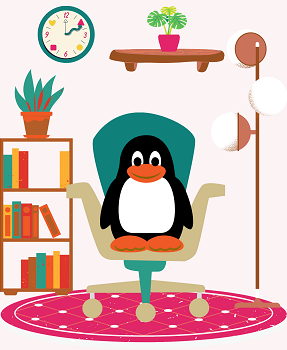
1) Do you have a favourite quote?
Not really.
2) Do you have any pets?
At the moment I don’t, though I’ve had cats for all my adult life, usually two, sometimes one or three. Our most recent, Stella, died of old age a few years ago and we didn’t replace her because we wanted to travel. Then COVID-19 came along…
3) What are you currently reading?
At the moment I’ve just finished A Thousand Ships by Natalie Haynes. I’ve very much enjoyed her earlier retellings of classical myths and dramas and this is no exception, a new sidelight on to well-known tales told from the female perspective. For non-fiction I’m reading Red Notice by Bill Browder, it’s a high-octane tale, recounting Browder’s experiences in Russia as the old Soviet Union was breaking up and his fight with Putin’s regime, after his friend and lawyer Sergei Maginsky was murdered by the state. It reads like a thriller.
I’ve also been reading the non-fiction Adventures in the Screen Trade by William Goldman, a book about screen-writing which is insightful, useful and very funny. It’s become a classic memoire about Hollywood. My TBR pile is too enormous to mention – mainly because I can’t read fiction when I’m writing a first, or even a second draft.
4) Your book has been made into a movie, you’ve been offered a cameo role, what will you be doing?
In ‘Opera’ I think I’d like to take the role of the operations director at the Royal Opera House. She isn’t named and only appears in one scene, arranging security for the visit of the minister, but that’s who I’d be.
5) If you could travel to a fictional world from any book for the day, which would you choose?
I’d like to dip into The Arabian Nights, that exotic world of genies and djinns (as long as I get one of my own, in a shiny brass pot, to command). I loved these stories as a child, even if, like folk tales and fairy stories, they weren’t particularly written by individuals. One Thousand and One Nights is the formal title of stories told by Scheherazade to her captor, King Shahriyar, so as to fascinate him and delay her own execution. They were collected and translated by Sir Francis Burton.
6) There’s a penguin sitting in your chair, what’s the first thing he says to you?
‘I want a cushion.’
A big thank you to Julie Anderson for sharing her writing life with us and for a wonderful interview.
Author links
Goodreads
Website

